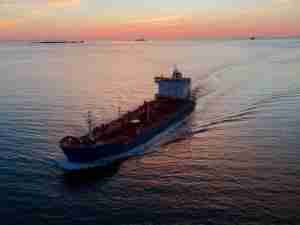Is bigger really better in transportation?
posted by AJOT | Mar 12 2000 at 07:00 PM | International Trade
By Conrad H.C. Everhard
The following was excerpted from a speech before The South Atlantic and Caribbean Ports Association, March 3, 2000.
As we begin the 21st century, those who are controlling liner transportation policy appear to be motivated by one guiding principle - "BIGGER IS BETTER." Recent mergers and consolidations among ocean carriers have not only resulted in the virtual elimination of a US-owned merchant fleet, but have placed tremendous economic power in the hands of a few, very large foreign companies upon which US commerce is dependent. These carriers are now in the process of converting their fleets to post-Panamax vessels in the 5,000 to 7,000 teu range, which obviously has ramifications, both physical and financial, for ports. Currently there are orders for 35 ships of more than 6,000 teu capacity. The latest statistics for cargo handled at US ports shows that, already in 1999, the top three US ports handled more containers than the next 12 ports combined.
Cargo intermediaries are also part of this obsession with size. In the past year, for example, both the big Swiss forwarder Danzas, and US-based Air Express International have been merged into Deutsche Post, the German postal system. Deutsche Post has spent some $5 billion in an attempt to achieve an integrated network which would be the world's largest air freight forwarder and among the top five in ocean freight forwarding. Last week I read that, in addition to these acquisitions, Deutsche Post is now negotiating to merge their logistics operations with Lufthansa Cargo! Deutsche Post and Lufthansa each are said to own about 25% of DHL. As most of us remember, the US forwarder and NVO, Fritz Companies, followed a similar course of swallowing up numerous other intermediaries for a number of years before it nearly choked on the results. Another well-known intermediary, FedEx, recently announced plans to acquire Tower Group International, one of the largest US forwarders.
Shippers' associations also have grown in size and popularity as both small shippers and NVOs seek to defend themselves in this environment of economic Darwinism.
Apparently blind to the disastrous example of US rail consolidation, policy makers are encouraging similar consolidation (and similar results) in the liner shipping industry. The methods are also the same. Large shippers and carriers were permitted to establish a system of secret discriminatory contracts to replace most vestiges of common carriage, first in rail, then in ocean shipping. This in itself places a premium on size, since volume is a major influence on the level of rates that can be negotiated under these contracts. Conference control over ocean contracts was removed, so that collective contracts have been largely replaced by individual carrier contracts. In addition, US jurisdictional limits seem to have been removed (by rhetoric alone) so that global contracts are now permitted, and required to be filed with the Federal Maritime Commission (FMC). These changes are part of the Ocean Shipping Reform Act of 1998 and combine to encourage carriers to become large enough to compete on a global basis for the cargo of the Fortune 500 shippers. The little guys, both carriers and shippers, and particularly the small middlemen, are seriously disadvantaged by this new law and were completely excluded from the so-called "compromise" which led to its enactment.
Congress abdicated its policy role by accepting the "compromise" presented to them by the large shippers and carriers and passed this legislation without hearings. Not one Congressman or Senator would stand in the way of its passage, regardless of clear signs that it was grossly unfair to small shippers, carriers and intermediaries and that it would lead to the demise of the US-flag merchant marine. Not even the sale of American President Lines (APL) to Singapore's NOL midway through the bill's progress toward law gave pause to our policy makers, despite the obvious and publicized connection between these proposed legislative changes and APL's









